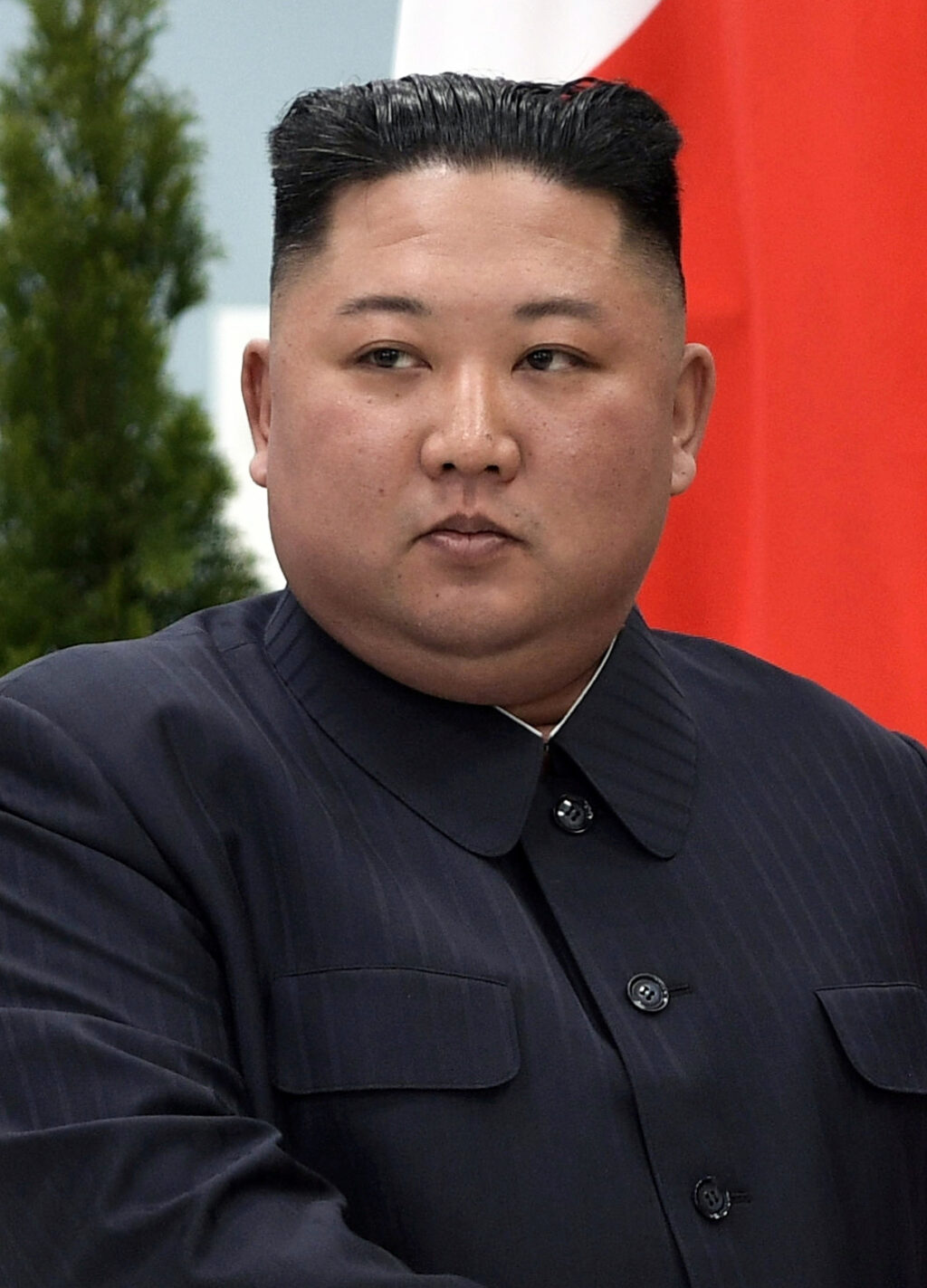
North Korea's leader Kim Jong Un-Wikipedia
STRATEGIC ASSESSMENT-Pyongyang. While the attention of the global media remains fixed on Russia’s illegal invasion of Ukraine and the latest developments in the conflict, North Korea seems intent on grabbing some of the spotlight. Never shy about engaging in provocative acts, North Korean leader Kim Jong Un ordered the launch of an intermediate-range ballistic missile over Japan earlier this week. The launch was the first over Japan in five years, but the seventh overall. Since January of this year, North Korea has engaged in 24 separate weapons tests, including six in the last two weeks. According to South Korean officials, the missile over Japan traveled 2,800 miles and reached an altitude of 602 miles before it crashed into the Pacific Ocean, approximately 2,000 miles east of Japan. The Japanese government warned its citizens to evacuate certain areas, and both Tokyo and Seoul responded to the launch with strong rhetoric. Japan’s foreign minister immediately convened the country’s National Security Council. Yesterday morning, North Korea fired two short-range ballistic missiles, and the United States has ordered the USS Ronald Reagan, a nuclear-powered aircraft carrier, to sail back to waters off the coast of the Korean Peninsula. The missile launches were followed by North Korea flying a dozen warplanes near its border with South Korea, leading Seoul to respond with 30 military aircraft of its own.
East and Northeast Asia have received less attention from the United States, which remains mired in foreign policy challenges after two decades of fighting in the Middle East and South Asia, and with current resources focused on Europe. The long-awaited ‘pivot to Asia’ envisioned during Barack Obama’s presidency never seems to have materialized. Yet, between Chinese military drills near Taiwan and repeated saber-rattling from North Korea, the Biden administration would be wise to articulate its strategy for dealing with the region, particularly how it intends to approach Pyongyang. Strategic policy action on North Korea has proven to be a lingering foreign policy challenge that has bedeviled successive U.S. administrations dating back to the end of the Cold War, including the Trump administration. Following President Trump’s “fire and fury” provocations which many believed recklessly risked war, the administration engaged in a series of negotiations with North Korea’s notoriously mercurial leader. Trump was criticized heavily for the two summits he attended with Kim Jong Un in Singapore and Vietnam, respectively, gaining no tangible benefit in return. Ultimately, the talks went nowhere, and Kim vowed never to give up his growing arsenal of nuclear weapons.
The missile fired by North Korea is believed to be more powerful than the previous Hwasong-12, with the recent projectile capable of reaching the U.S. territory of Guam, and prompted strong reactions from U.S. officials. The launch comes just after the visit of U.S. Vice President Kamala Harris to the region. U.S. Indo-Pacific Command (USINDOPACOM) released a statement calling for North Korea to “refrain from further unlawful and destabilizing acts,” while U.S. assistant secretary of state for East Asian and Pacific Affairs Daniel Kritenbrink reassured both Tokyo and Seoul that the U.S. would “take all necessary measures, involving all elements of American national power” to defend its allies and work toward ensuring stability throughout the region. U.S. President Joe Biden reassured Japanese Prime Minister Fumio Kishida of Washington’s “ironclad commitment” to defending Japan, in an effort to ease tensions.
There are growing concerns that North Korea could be preparing for its seventh nuclear test. Pyongyang last tested an underground nuclear bomb in September 2017. With no coherent strategy for dealing with North Korea, and unable to rely on the United Nations Security Council for meaningful action, which Russia and China would both likely veto, there are few viable options for Washington. In May, China and Russia vetoed a strongly backed U.S. Security Council resolution that would have imposed new sanctions on North Korea, after the country performed a record number of missile launches. Defending their veto in a debate, which under new rules requires the General Assembly to examine any veto in the Security Council, China and Russia blamed the U.S. for rising tensions in the region and for ignoring “positive steps” taken by North Korea. The position taken by China and Russia attributing the launch to Western provocation proves the Council will not offer a meaningful platform for de-escalation. Firing ballistic missiles is a direct violation of an existing United Nations ban that Kim continues to ignore. Perhaps no longer content to rely solely on a U.S. security umbrella, prominent voices in Japan have been arguing for a more muscular foreign policy in Tokyo. Trilateral exercises between the U.S., Japan, and South Korea are intended as a deterrent to Kim; however, given nearly two dozen weapons tests since the beginning of the year, it is clear that Pyongyang is anything but deterred and appears moving toward escalation. To date, Kim has rebuffed the Biden administration’s diplomatic overtures and failed to respond to calls for disarmament talks.





